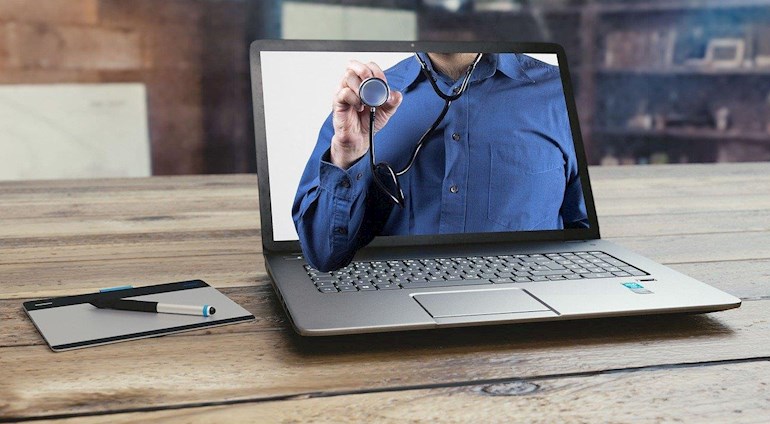It seems clear that society is moving closer to remote consultations and distanced prescribing. This may or may not be a good thing in the long run but at present many patients have found the experience unsatisfactory and at times deeply worrying.
I personally feel uncomfortable about talking about my intimate health issues to the disembodied voice of a consultant I've never met. On occasion, I've felt angry and frustrated for example when a respiratory nurse called out of the blue to carry out my annual review. Without seeing me, without listening to my breathing, or conducting a spirometry test she concluded after a few basic questions that nothing had changed. Seriously! A lot had changed during the lockdown.
During these past months, so many of us have experienced the damaging effects of being unable to exercise, get outdoors for fresh air, or engage in normal social interactions. As a result, both mental and physical health has suffered and the need for face-to-face support and reassurances from the medical profession has grown.
Sadly, as a consequence of lockdown, face-to-face consultations were reduced to a minimum and most of us had no choice but to accept remote consultations. Now that lockdown is being eased one would expect a return to normal service. However, GPs are up in arms over a directive from the NHS England to resume face-to-face consultations with all patients. I can't say I entirely blame the GPs as in my opinion far too many people abuse the NHS by taking up GP's valuable time for minor ailments that don't need to be seen by a GP.
Either way, we are now in the digital age and I believe remote consultations and prescribing are here to stay. This may not necessarily be a bad thing. Developers are creating useful apps to support patient health and interaction with health providers. For example, some GPs have adopted the NHS-approved MYCOPD app created by My Health.com.
Meanwhile, I personally find it helpful to record all my conversations with my GP and with any consultants. Not only is it legal the NHS actively encourages health professionals to positively embrace patients' requests to record the consultation.
NHS states that patients do not need permission to record their conversations but it is a matter of courtesy to inform the health provider of your intention to record. Some health professionals might see this as evidence of a lack of trust or preparation for legal action. Personally I've never had any problem or sensed any resistance from my health providers. I find the recordings to be very helpful. I can more easily recall or research important points of information. The recordings make it easier to discuss my health issues with my family and I have more clarity on the proposed action plans.
